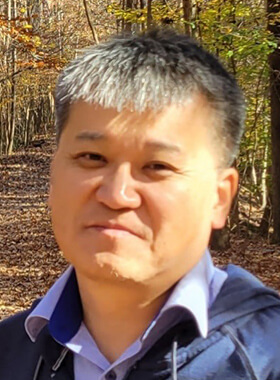Machine Learning-Driven Poroelasticity Modeling and Real-time Data Assimilation
Hongkyu Yoon
Sandia National Laboratories, NM, USA

Biosketch
Hongkyu Yoon is a principal member of technical staff at Sandia National Laboratories. He obtained a Ph.D degree in Environmental Engineering in Civil Engineering from the University of Illinois at Urbana-Champaign. After working as a research scientist at Illinois, he joined Sandia and his research focuses on subsurface carbon storage and energy recovery with emphasis on multiphase flow and reactive transport, chemo-mechanical coupling, and high-fidelity inverse modeling and uncertainty quantification. He is currently leading research projects on machine/deep learning development and applications for subsurface energy recovery, carbon storage, and remote sensing data analysis for greenhouse gas emissions in Sandia Earth Science program.
Introduction of the Lecture
Machine/deep learning (ML/DL) methods have recently emerged as promising methods for big data analysis and real-time forecasting of coupled subsurface processes. With traditional computational methods high dimensional forward and inverse problems for coupled subsurface processes have been challenged by the number of high fidelity forward model simulations and computational burdens with matrix calculations. Using ML-driven fast forward models and robust non-linear projection operators for dimension reduction, a ML-based framework can be developed as a robust and fast data assimilation solution for real-time forecasting. In this lecture a few examples of supervised and self-supervised ML applications for fast surrogate models will be first presented to highlight promising results of ML applications for coupled subsurface processes, and then generative models such as (variational) autoencoders and generative adversarial networks will be presented as non-linear projection operators to reduce the high dimensional parameter space to the low dimensional latent space. With well-based observation data the ML framework can be combined with a Bayesian inverse model or ensemble-based data assimilation to update the state model parameters for real-time forecasting. For demonstration purposes, poroelastic modeling of flow and pressure propagation in heterogeneous permeability fields and fractured media will be used to demonstrate the accuracy and speedup of the ML framework for real-time forecasting. SNL is managed and operated by NTESS under DOE NNSA contract DE-NA0003525.
